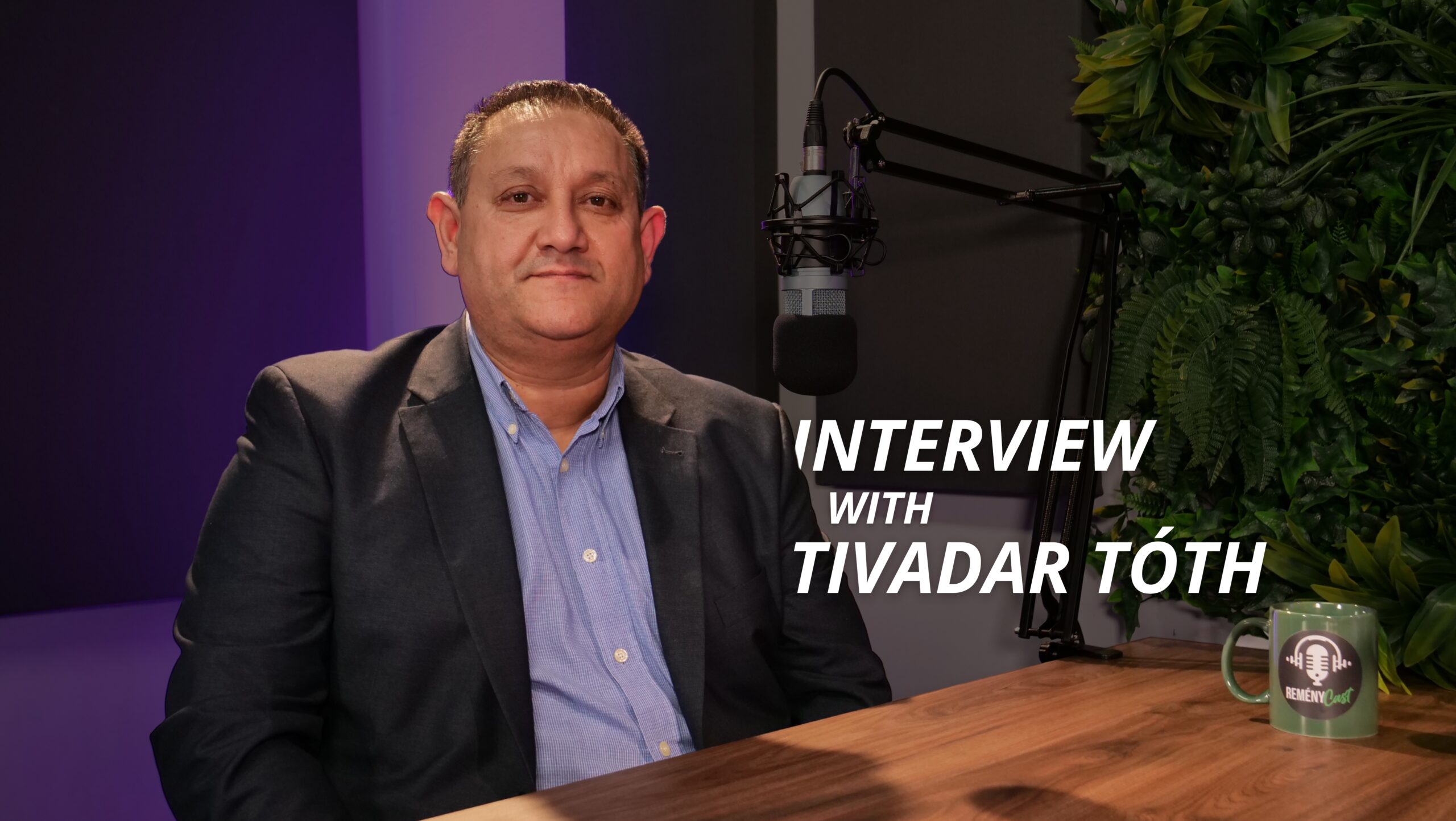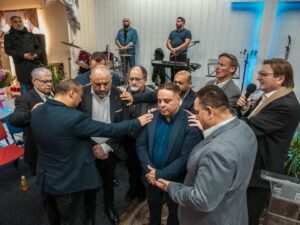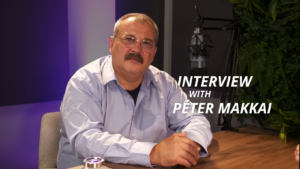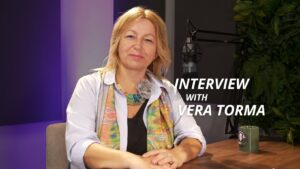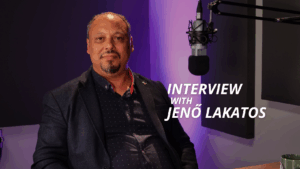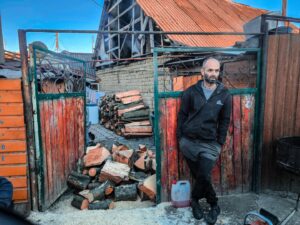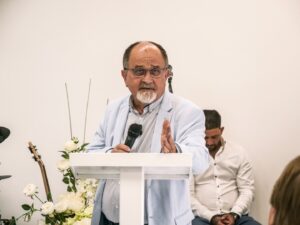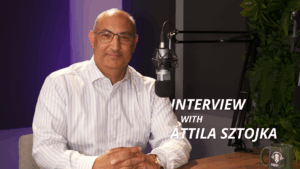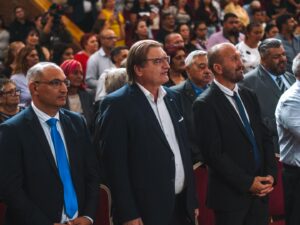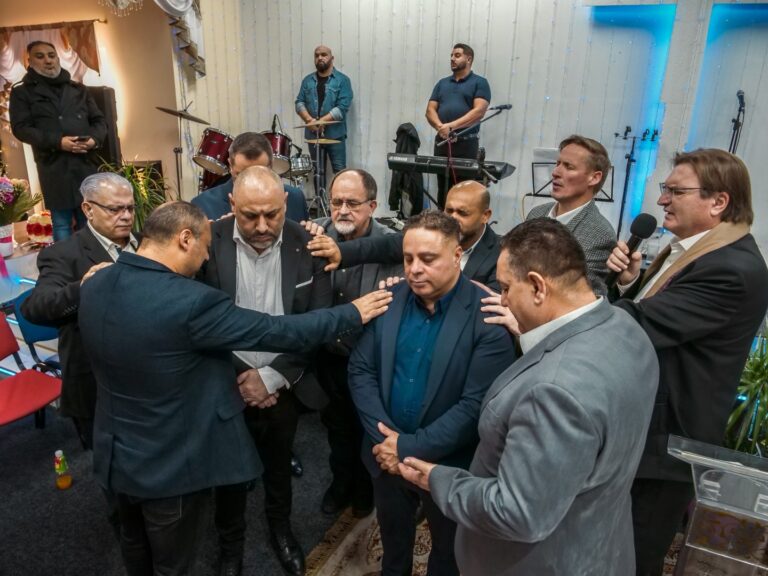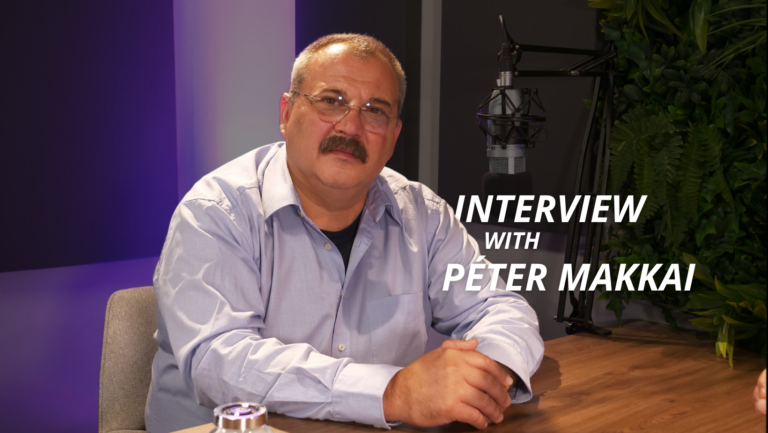Our guest today is Tivadar Tóth, executive elder of the Hungarian Gypsy Missions International and pastor of the Alpha Church in Sáta, Hungary. On the occasion of the tenth anniversary of the community he founded, we look back at the church’s journey, talk about his calling, the challenges of building community, and the everyday miracles that have shaped their story.
Welcome, Tivadar! The Alpha Church in Sáta recently celebrated its 10th anniversary. Could you share how this community began?
Thank you for having me. I founded the church in 2014 after a season of prayer during which I received a calling from God through two Bible verses. We officially started in June with a small prayer group — four adults and three children. From the beginning, our work was rooted in fasting and prayer.
Did you always know you wanted to become a pastor?
No, not at all. In fact, I was afraid to stand up and teach people because I didn’t feel adequately prepared. But God called me anyway and placed me firmly in this ministry.
Did you grow up in a Christian family?
Yes, my parents were Christians and attended a traditional church in the nearby village of Nekézseny. I was baptized when I was ten years old, and I’ve been following Jesus for nearly forty years now. Although we lived in poverty, God was always central to our family.
As a child, did you feel God’s love and guidance? Were you ever tempted to turn away from Him?
Absolutely — my parents raised me to put God at the center of everything. There were, of course, temptations, but I lived a decent life. One of my greatest trials came when I lost my mother at eighteen — she passed away at forty-three. It shook me deeply and made me question God. After that, I had to stand on my own feet. I worked in the mines and married young out of love, needing to build my own family because I no longer had a stable family background.
How did you meet your wife?
There’s an interesting family connection: my sister married into a family where my wife’s brother is. So just as he married my sister, I married his sister — creating a double family bond.
It’s well-known that your wife is a devoted believer and supports you in ministry. Is it true she hadn’t yet accepted Christ personally when you met?
Yes, that’s right. She came from a Catholic background — she attended church, was confirmed, took communion, and always valued faith. She even prayed for a husband with whom she could serve the Lord together. We’ve now been married for thirty-one years, and most of that time we’ve spent serving God side by side.
Is it true you started working in the mines at seventeen? How did you manage such physically demanding work?
Yes — I wasn’t even eighteen when I had to start working to support myself. It wasn’t my original plan, but sometimes life demands adaptation. Mining is hard physical labor, but it provided enough financially to get married, start a family, and stay committed to church life.
What happened after the mines closed?
When the mine closed in the 2000s, I worked various jobs and continually retrained through different courses to remain employed. For example, I worked as a warehouseman in a factory producing switches, passed the ECDL computer exam, and worked as a forester, earning certifications in chainsaw operation and tree felling. Today, I hold six trades in total. I have always done whatever was necessary to provide for my family, trusting in God’s guidance every step of the way.
How did you balance all this work with family life?
Family has always been my priority. Before Sunday lunch and church services, we’d always sit together to talk about the children’s school week, share joys, and discuss problems. We have four children — three daughters and one son — all of whom have given their lives to Christ and been baptized. We always encouraged them to focus on their education but above all to keep God first.
When did you begin pastoring officially?
I have been an ordained pastor since 2014, but I was actively serving in the Ózd Silány Church even before that. I completed my studies at the Christian Folk High School in 2003, and since the early 2000s, I have led mission stations in Sáta. Therefore, my ministry extends more than a decade prior to my official ordination.
How great was the need for the gospel in your region? It’s known to be a poorer area, right?
Yes — and I believe that where sin abounds, grace abounds even more. Among the poor and hopeless, we often see powerful spiritual awakenings. Of course, we reach out to everyone — Roma and non-Roma alike.
How did the Alpha Church form, and how did you become part of the Hungarian Gypsy Missions International?
In June 2014, I began a chain of prayer and fasting. Within five or six months, people started coming to faith, and news spread rapidly to nearby villages. I have conducted baptisms multiple times each year and have baptized over 200 people to date. Today, the church has approximately 260 members. After six years, we achieved self-governance, established a God-led leadership (a theocracy), and became self-sustaining and self-replicating. We became an independent church, not bound to any denomination and free to grow as the Spirit leads. In 2020, I connected with the leaders of HGMI, and we officially joined their network. I continue to serve there to this day.
You now serve as an executive elder — what does your daily ministry look like?
Yes — the Lord continues to promote me. I serve as the regional representative for North Hungary, Borsod County, and as an executive elder. My weeks are full: my wife and I are on the road from morning until late at night, usually returning home around 10 PM. Each day, I lead house groups in various villages such as Sáta, Ózd, and Bóta, together with local leaders. In the mornings, we visit the sick, assist with medication, and provide social care. Rest is rare because supporting people is my daily calling.
Besides spiritual support, do you provide practical help for those in need?
Yes — it’s a vital part of our ministry. My wife oversees the charity work within our mission. We supply furniture and clothing through external sources, while food donations come mainly from our church’s offerings. We hope this practical support will open people’s hearts to God. Poverty here runs deep — once, at a clothing fair, families took clothes by the sackful, and we later discovered that some burned them for heat due to a lack of fuel. Now we help more intentionally: we assess each family’s specific needs — the ages of the children, the clothing or food required — and provide accordingly, ensuring donations are genuinely useful.
Is it harder to build a church today? Doesn’t the internet keep people away from gathering in person?
From experience, yes — when we first live-streamed services, some members got comfortable watching at home on big TVs while we worshipped together in person. But the Holy Spirit made it clear to me that this wasn’t good; it separates people from real community. God’s desire has always been to dwell among His people. So for us, gathering in person is essential — being together, worshipping, and encouraging each other face to face builds faith and love in a way online viewing never can.
Who is most open to your ministry now? What does your congregation look like?
Lately, the young generation has become especially open to us — this age group has grown significantly in our church. Previously, I mostly worked with women; few men were involved. But in the past four or five years, the Lord has brought many men who now study in Bible schools and leadership courses. I’m no longer carrying the work alone. Our goal is to raise disciples who can share the gospel and lead others — this is at the heart of what we do.
What are the biggest challenges people face in your area? Why are there so many healings and deliverances in your church?
Poverty is the greatest source of pain here. Unemployment is widespread, opportunities are scarce, and many families break apart as fathers leave for months to work elsewhere or abroad. This brings spiritual and emotional struggles, often leading to despair and hopelessness.
Healings and deliverances are frequent because we are a charismatic church — we believe God’s power is still at work today. Some healings have even been medically documented. For example, my daughter-in-law was gluten intolerant but was completely healed through prayer. One sister had cancer; after much prayer, her tumor disappeared — confirmed by medical records. Many people have been freed from alcohol, smoking, and drug addictions — especially young people for whom substances once mattered more than family, yet God intervened powerfully. Some villages have experienced revival like an avalanche.
However, behind all this lies intense spiritual warfare. We do not fight against people but against spiritual forces, as the Bible teaches. We can only overcome them through prayer and fasting. Yet we stand strong, believing that Jesus has already won the victory.
Do you have regular prayer and fasting? What happens to those baptized in your church?
Yes — prayer and fasting are the backbone of our church. In Sáta alone, we have two prayer groups — fasting chains in which members take turns fasting and praying for the community, ministries, and regional revival. Similar groups operate in every village where we serve. Without this spiritual foundation, the church could not function.
To date, we have baptized over 200 people. Naturally, not everyone remains active. As the Bible tells us, Jesus healed ten lepers, but only one returned to thank Him. We help and support people, but it is God who sustains them. We believe in offering second chances — if someone falls, we do not condemn them but help them stand again. Many people here receive multiple chances because we all need God’s grace. About 80% remain actively involved in church life.
Has the church ever faced splits or conflicts in these ten years?
Unfortunately, yes — in 2019, one of our leaders rebelled against the church’s leadership and took about a third of the members with him. It was a painful time, but by God’s grace, the church didn’t collapse — instead, we became stronger. The Bible says divisions sometimes help purify. But our hope is always for peaceful, loving growth — like strawberry runners, naturally branching out into new communities, not splitting through conflict or anger.
You once shared about a profound encounter with Jesus, where He asked you to remain humble. Could you tell us about that experience?
Yes — it was in the summer of 2014, and it was not a dream. I was fully awake one afternoon when the Lord appeared to me. I did not see Him immediately but felt His presence and heard His voice. It was as if I were in a bubble with Him — a different reality where only He and I existed.
He gave me two key scriptures and showed me how to build the Alpha Church in Sáta. As He departed, I saw Him for the first time — not as a human figure but as a flame, a moving, shifting light. I could not make out a face, but I knew it was Him. He raised His hand and said, “I can only work with you as long as you keep your humility.” That burned into me so deeply that, to this day, it remains one of my life’s core principles. Any fruitful work I do is possible only as long as I maintain humility. If I lose that, I could lose everything. The Lord’s presence is tied to humility, so I strive every day to remain humble.
How did this encounter change your life and ministry?
Profoundly. I have realized that I do not need to force my way forward. If God makes a promise, He will fulfill it — my role is simply to follow, listen, and allow Him to shape me. I now understand that Jesus must always go before me. He is not merely a tool but a living Person with whom I must remain in relationship — like a marriage covenant. This has become the foundation of my life and ministry.
Looking ahead, what are your hopes for the future?
I trust God completely. He said, “Come to Me, all you who are weary…” — so we do not have to carry our burdens alone; we can lay them at Jesus’ feet. The future may be uncertain — war, sickness, or hardship may come — but our work must continue. Blessed is the servant whom the Master finds doing His work. The most important thing is to bring God into people’s hearts. If we must go, we go. If we must die for it, we die. One thing matters: that God’s rule — a true theocracy — lives in our hearts. If it does, He will always go before us.



